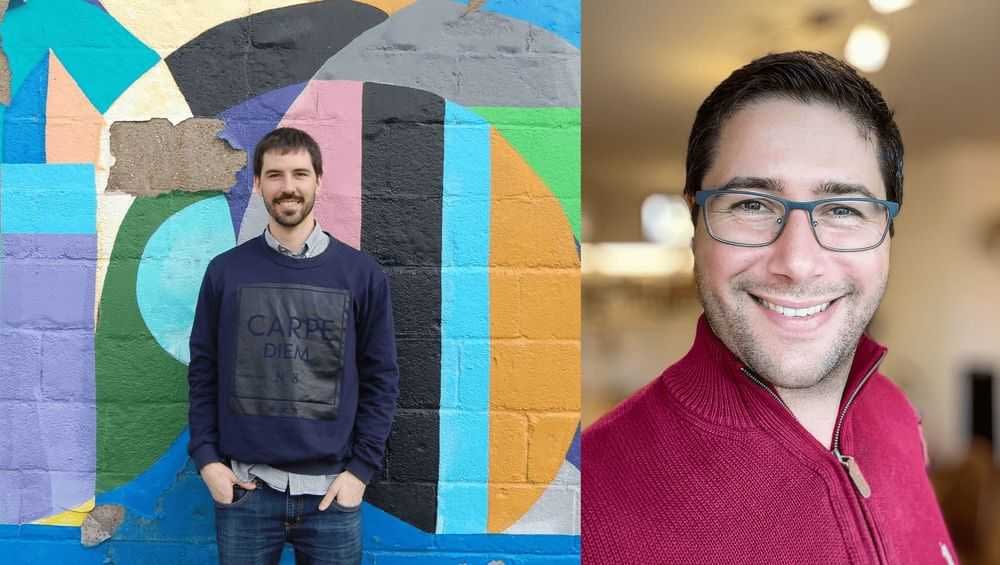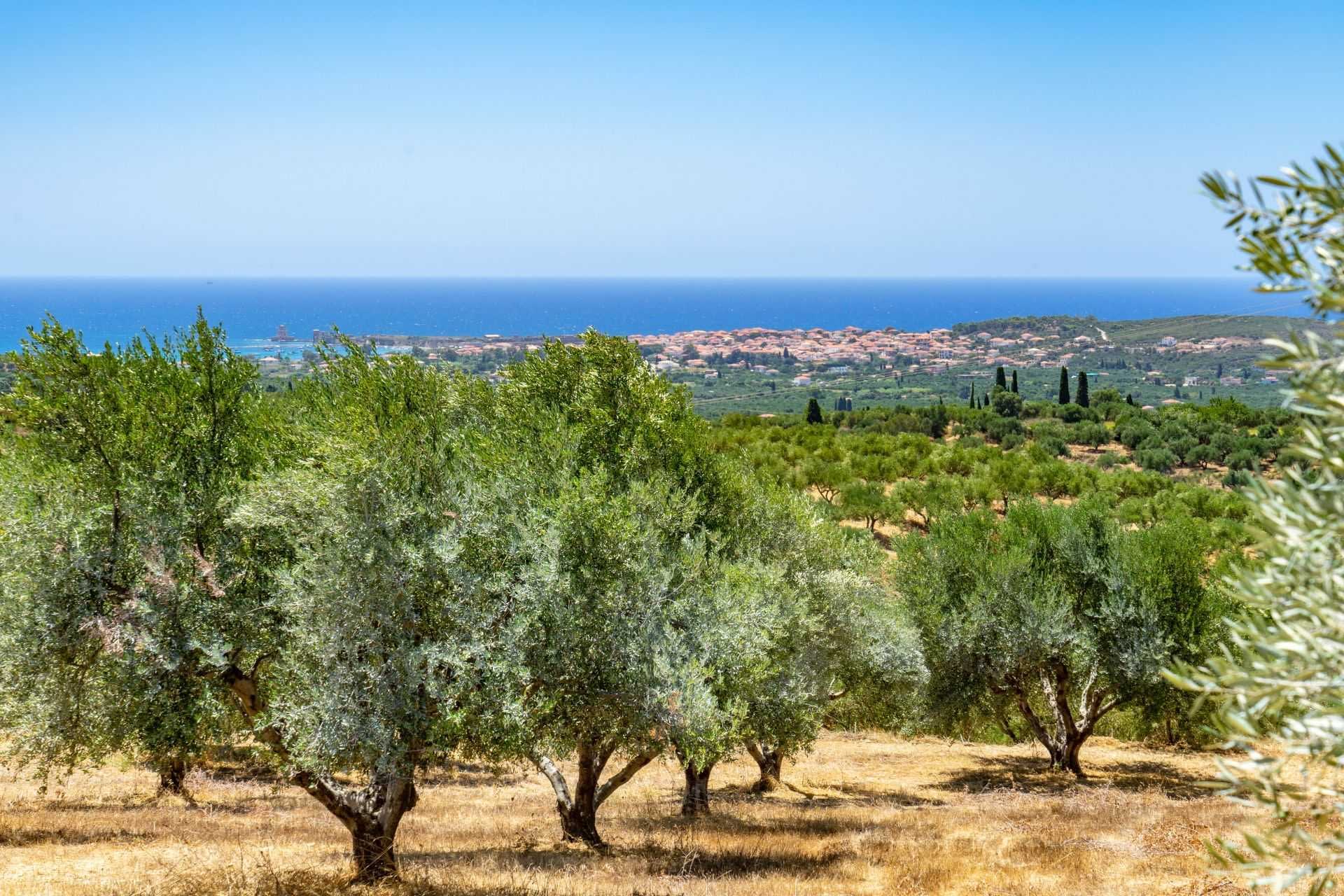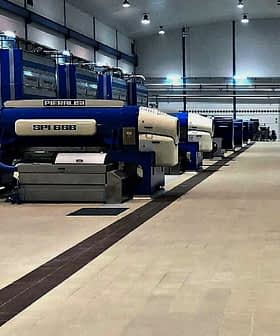Two months after Christie’s Auction House sold a non-fungible token (NFT) created by the digital artist Beeple for $69.3 million, the technology behind the emerging cryptographic asset is already being applied to extra virgin olive oil.
“The biggest use case for non-fungible tokens have been so far for digital art,” Martin Sterlicchi, a partner at the blockchain technology company Node Management and co-creator of Aisthisi, told Olive Oil Times.
We definitely view that as a full physical, digital experience… You’ll be able to see the digital art and the NFT, taste the olive oil, touch the bottle, smell it.
“[But] it is just as easy to represent a physical asset with a single token,” he added.
An NFT is a cryptographic asset on blockchain represented by a unique identification code. They differ from cryptocurrencies since they cannot be transacted at equivalency but can be used in commercial transactions.
See Also:Tunisian Olive Oil Producer Will Use Blockchain Technology to Fight Fraud“We’ve seen a lot of experiments in this world focus on more of the real estate side of things where people are representing pieces of land or property and that ownership of it through this NFT,” Sterlicchi said.
“We’re taking that digital art piece, which is very popular, mixing it with a physical ownership representation piece and applying it to the world of olive oil since that’s where we’ve got a bit of a connection already,” he added.
Along with his co-creator, Thomas Wiesner, the chief technology officer at Morpher, a trading platform for cryptocurrencies and cryptographic assets, Sterlicchi is preparing to transform 10 uniquely packaged bottles of extra virgin olive oil into NFTs.
The pair is working with 10 artists from around the world to create unique labels, which will be placed on each bottle of Koroneiki extra virgin olive oil, hand-harvested and transformed by Wiesner’s mother, Elisabeth Tsapekis, an olive farmer in Messenia.
“The 10 unique bottles are the physical component that you will get if you have the digital component, which is the NFT,” Wiesner told Olive Oil Times.

Martin Sterlicchi (left) and Thomas Wiesner
“It’s a very small batch where we’re actually climbing in the olive trees and manually picking the olives,” he added. “In addition to the digital art piece that the artist creates, the NFT holder will also get a personalized video of the harvest. Each video will be slightly different and have a message at the end of the video for the NFT holder.”
The NFTs will be sold at an online auction via Ethereum, the most popular blockchain for creating and transacting NFTs, in July.
“The consumer purchases the NFT through the auction and then they can transfer it around and that is what the NFT is there for,” Wiesner said. “It’s representing something that is non-fungible, but it can still be transferred around.”
He added that this is one of the main challenges of the project: pinpointing exactly who is in possession of the NFT as the harvest gets underway.
The pair will get around this problem by creating a mechanism that will lock the transferability of the NFT as the harvest gets underway. To unlock the NFT, the consumer will need to provide their shipping address.
Once the bottle arrives and the NFT holder scans its QR code to confirm they have received it, the NFT will be unlocked once again. The holder will then be able to view the harvest video and personalized message.
Neither Wiesner nor Sterlicchi knows how much the bottles will sell for, which is part of the excitement of the experience.
“I don’t think we can give a full number right now, but I think that it will be more than your average bottle of olive oil,” Sterlicchi said. “Because this is an emerging market with a magnifying glass around it by people all over the world, there is still a lot of price discovery going on right now.”
However, the two believe that the project will successfully create a unique experience for the olive oil purchaser and an added value component for the producer.
“We definitely view that as a full physical, digital experience. The name of the project – Aisthisi – is Greek for ‘sensation,’” Sterlicchi said. “You’ll be able to see the digital art and the NFT, taste the olive oil, touch the bottle, smell it.”

Elisabeth Tsapekis’s olive groves on the southwestern tip of the Peloponnese peninsula.
“Today if you buy a bottle of olive oil, you go to the store and you don’t really see what’s behind it, but the NFT allows the consumer to peek inside and see where it came from and get more of a sense that the olive oil has been specifically made for the consumer,” he added.
Along with this unique experience for the consumer, selling the bottles as an NFT before the harvest also allows Tsapekis to bypass most of the supply chain and get her olive oils to consumers quickly and efficiently.
“One thing that I always found interesting is when you are trying to get her extra virgin olive oil, it takes a long time between the harvest and when it arrives on the supermarket shelves in Austria,” Wiesner said.
“The quality isn’t degrading so much, but you don’t get the opportunity to taste fresh extra virgin olive oil unless you know a producer and are part of a harvest,” he added. “I found it very intriguing: how fast can we get a bottle of olive oil to an end customer?”
Coming from the world of high-tech and looking at the world through this lens, Wiesner believed that technology would be the way to solve the problem and facilitate a more direct sales channel for producers to consumers.
“I think it is going to be a new way to look at supply chains across various industries,” Sterlicchi added. “One of the main things that I find intriguing about the world of blockchain and cryptocurrency is that it does open it up and ease the barriers of entry for all purchases. In this case, the producer straight to the consumer.”









